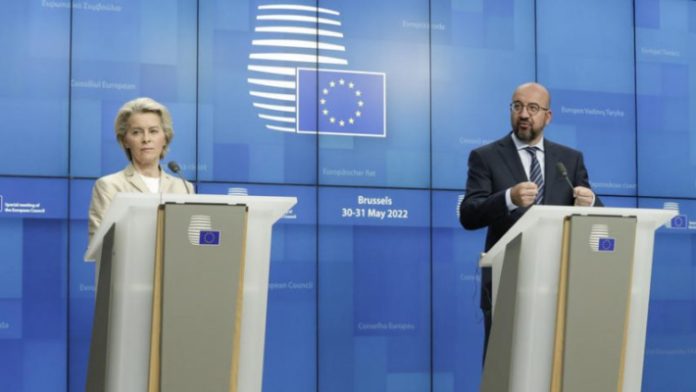The European Commission President, Ursula von der Leyen has called for the European Union and Africa to step up efforts on food production, including via innovative farming techniques such as precision farming, in light of the war in Ukraine.
Speaking during a press conference following a meeting of EU leaders von der Leyen listed “stepping up our own food production” as one of the key elements in making up for the deficit in food production left by the Ukraine war.
Both Russia and Ukraine play a central role in supplying the world with staple grains and oils, together providing more than a third of the world’s wheat and barley, 52% of maize, and over 50% of sunflower oil and seeds.
As a direct consequence of Russia’s invasion, millions of tonnes of food exports are currently stuck in Ukraine.
This increase in food production is especially prudent in light of the fact that the EU can expect a “record export of cereals of 40 million tonnes in 2022 and 2023,” the President added.
In the next two years, the European Commission estimates a 30% increase in exports of cereals will be needed to mitigate the impact on global markets of the reduced Ukrainian yield due to the war.
Besides the creation of so-called solidarity lanes, which aim to establish alternative logistics routes for Ukrainian wheat using all relevant transport modes, the Commission President also called on countries not to impose any restrictions on the global trade in agricultural products.
“Any kind of trade restrictions have absolutely no place in our member states or globally,” she added.
Since the outbreak of war, some 26 countries globally have introduced restrictions to agricultural trade, most recently of which India, which has restricted its wheat exports after suffering from an intense heatwave.
Some EU countries have also started considering restrictions on trade. For example, Slovakia recently tabled a proposal that would restrict agricultural commodities, a move that was strongly condemned by the Commission at the time.









